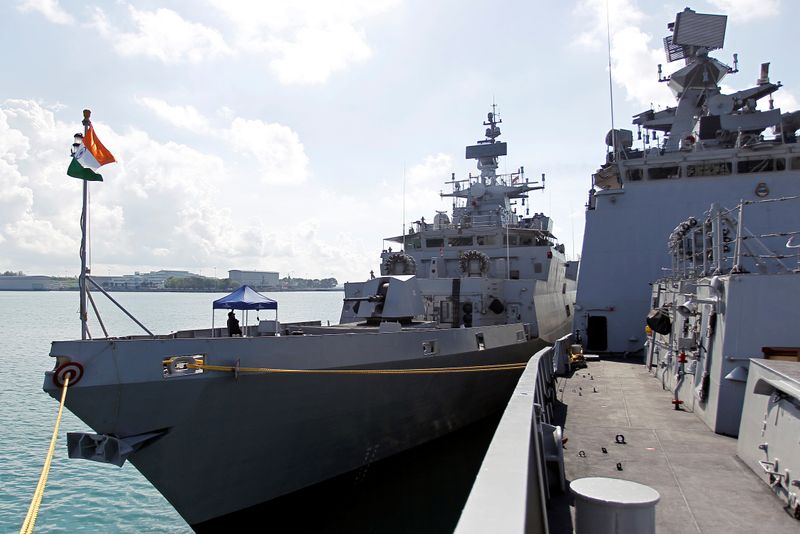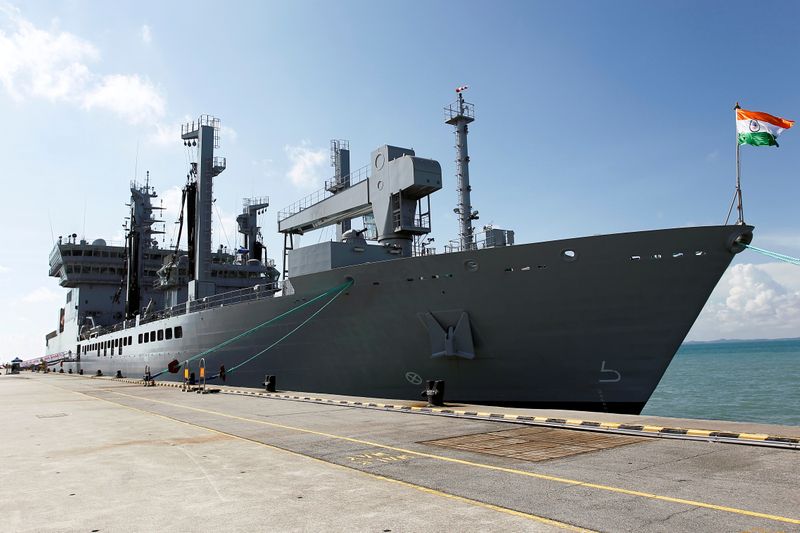NEW DELHI (Reuters) – India, the United States, Japan and Australia began their largest joint naval exercises in over a decade on Tuesday, Indian government sources said, seen as part of efforts to balance China’s vast military and economic power in the region.
The annual “Malabar” wargames that India holds with the United States and Japan have been expanded to include Australia this year to cover all members of the Quad, an informal group of the four largest democracies in the Indo-Pacific.
China has accused the United States, which has been leading the effort to forge a common front among its allies, of a “Cold War mentality” and ideological prejudice.
Five ships of the Indian Navy, including a submarine, were deployed in the exercise along with U.S. Navy’s John S McCain missile destroyer, Australia’s Ballarat frigate and a Japanese destroyer, the Indian ministry of defence said.
There will be no contact between the military personnel of the four nations because of COVID-19 restrictions during the first phase of the drills running till Nov. 6, it said.
Later this month, India and the United States will deploy aircraft carriers in the drills, a military source said.
“The exercise will showcase the high-levels of synergy and coordination between the friendly navies, which is based on their shared values and commitment to an open, inclusive Indo-Pacific and a rules-based international order,” the defence ministry said in its statement.
The exercises comes at a time when the host, India, is locked in a military stand-off on the disputed land border with China.
Thousands of troops are in close proximity in the western Himalayas, where India says Chinese troops have intruded across its side of the de facto border. Beijing denies any intrusion and says India has been building roads and other infrastructure in the disputed area, causing the crisis.
Australia’s diplomatic relations with China also worsened this year after Canberra led calls for an international inquiry into the coronavirus pandemic and Beijing imposed trade sanctions on Australian beef and barley.
Separately, Japan is embroiled in a dispute with China over ownership of islands in the East China Sea.
(Reporting by Sanjeev Miglani; Editing by Raju Gopalakrishnan)























